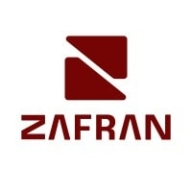


Fortra Alert Logic MDR and SentinelOne Singularity Identity compete in cybersecurity solutions. Alert Logic MDR seems to have the upper hand in terms of pricing and support, while SentinelOne's advanced features make it appealing despite higher costs.
Features: Alert Logic MDR offers real-time threat intelligence, automatic response to threats, and advanced threat detection with managed services. It focuses heavily on the integration of comprehensive threat intelligence. SentinelOne Singularity Identity provides adaptive identity management, seamless user authentication, and real-time policy enforcement, emphasizing robust identity protection.
Room for Improvement: Alert Logic MDR could enhance its deployment efficiency, reduce complexity in setup, and improve integration with existing systems. SentinelOne Singularity Identity can work on lowering initial costs, expanding identity protection to more environments, and providing clearer pricing models to attract budget-conscious users.
Ease of Deployment and Customer Service: SentinelOne Singularity Identity offers streamlined deployment with proactive customer service, often integrating easily with current systems. Alert Logic MDR may require more setup time due to its extensive monitoring capabilities, ensuring thoroughness but demanding initial configuration efforts.
Pricing and ROI: Alert Logic MDR is noted for competitive pricing and significant ROI, often seen as a budget-friendly option. SentinelOne Singularity Identity presents higher initial costs but provides superior ROI through advanced security features and long-term enhancements.



Zafran Security integrates with existing security tools to identify and mitigate vulnerabilities effectively, proving that most critical vulnerabilities are not exploitable, optimizing threat management.
Zafran Security introduces an innovative operating model for managing security threats and vulnerabilities. By leveraging the threat exposure management platform, it pinpoints and prioritizes exploitable vulnerabilities, reducing risk through immediate remediation. This platform enhances your hybrid cloud security by normalizing vulnerability signals and integrating specific IT context data, such as CVE runtime presence and internet asset reachability, into its analysis. No longer reliant on patch windows, Zafran Security allows you to manage risks actively.
What are the key features of Zafran Security?
What benefits can users expect from Zafran Security?
In industries where security is paramount, such as finance and healthcare, Zafran Security provides invaluable protection by ensuring that only exploitable vulnerabilities are addressed. It allows entities to maintain robust security measures while allocating resources efficiently, fitting seamlessly into existing security strategies.
Alert Logic specializes in log management, security configuration, SIEM, SaaS monitoring, network protection, and MDR services. It is suitable for sectors such as utilities, financial services, and government.
Alert Logic offers extensive log management and proactive security by centralizing logs, providing detailed notifications, and detecting intrusions. With global threat visibility and SOCs in the US and Europe, it speeds up the threat detection process in seconds. Advanced technologies, like AI and ML, improve its MDR services and differentiate legitimate user behavior from threats.
What are Alert Logic's key features?Alert Logic proves beneficial for various industries, with e-commerce applications utilizing it for robust log management and security measures. Utility sector companies leverage its network protection and threat detection capabilities, while financial services organizations appreciate its MDR services. Government agencies rely on its comprehensive infrastructure monitoring and SOC expertise for enhanced security.
Singularity Identity, a component of the Singularity platform, provides threat detection & response (ITDR) capabilities to defend Active Directory and domain-joined endpoints in real-time from adversaries aiming to gain persistent, elevated privilege and move covertly. Singularity Identity provides actionable, high-fidelity insight as attacks emerge from managed and unmanaged devices. It detects identity misuse and reconnaissance activity happening within endpoint processes targeting critical domain servers, service accounts, local credentials, local data, network data, and cloud data. On-agent cloaking and deception techniques slow the adversary down while providing situational awareness and halting adversarial attempts at lateral movement. Singularity Identity helps you detect and respond to identity-based attacks, providing early warning while misdirecting them away from production assets.
Singularity Identity’s primary use case is to protect credential data and disrupt identity-based attacks. The most valuable function of Singularity Identity is its ability to misdirect attackers by providing deceptive data to identity-based recon attacks. Additionally, it can hide and deny access to locally stored credentials or identity data on Active Directory domain controllers.
Singularity Identity also provides rapid detection and respond to identity attacks, capturing attack activity and feeding it directly to the Singularity platform’s Security DataLake for enterprise-wide analysis and response.
By implementing Singularity Identity, organizations benefit from enhanced security, reduced credential-related risks, and improved user productivity. It detects and responds to identity-based attacks, ensuring only authorized individuals can access critical identity data. With its cloaking capabilities to hide identity stored locally on endpoints or in the identity infrastructure and it’s ability to provide decoy results to identity-based attacks, organizations can effectively secure their sensitive or privileged identities, resulting in improved overall identity security.
We monitor all Vulnerability Management reviews to prevent fraudulent reviews and keep review quality high. We do not post reviews by company employees or direct competitors. We validate each review for authenticity via cross-reference with LinkedIn, and personal follow-up with the reviewer when necessary.